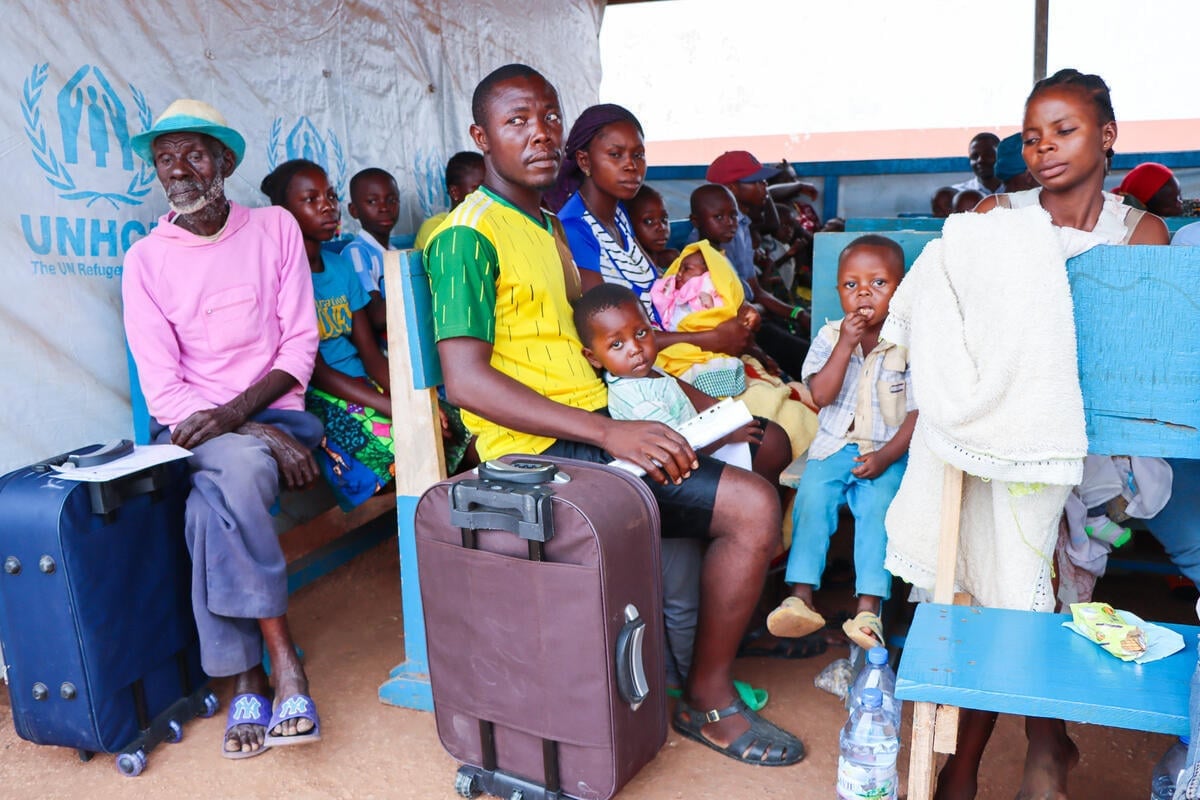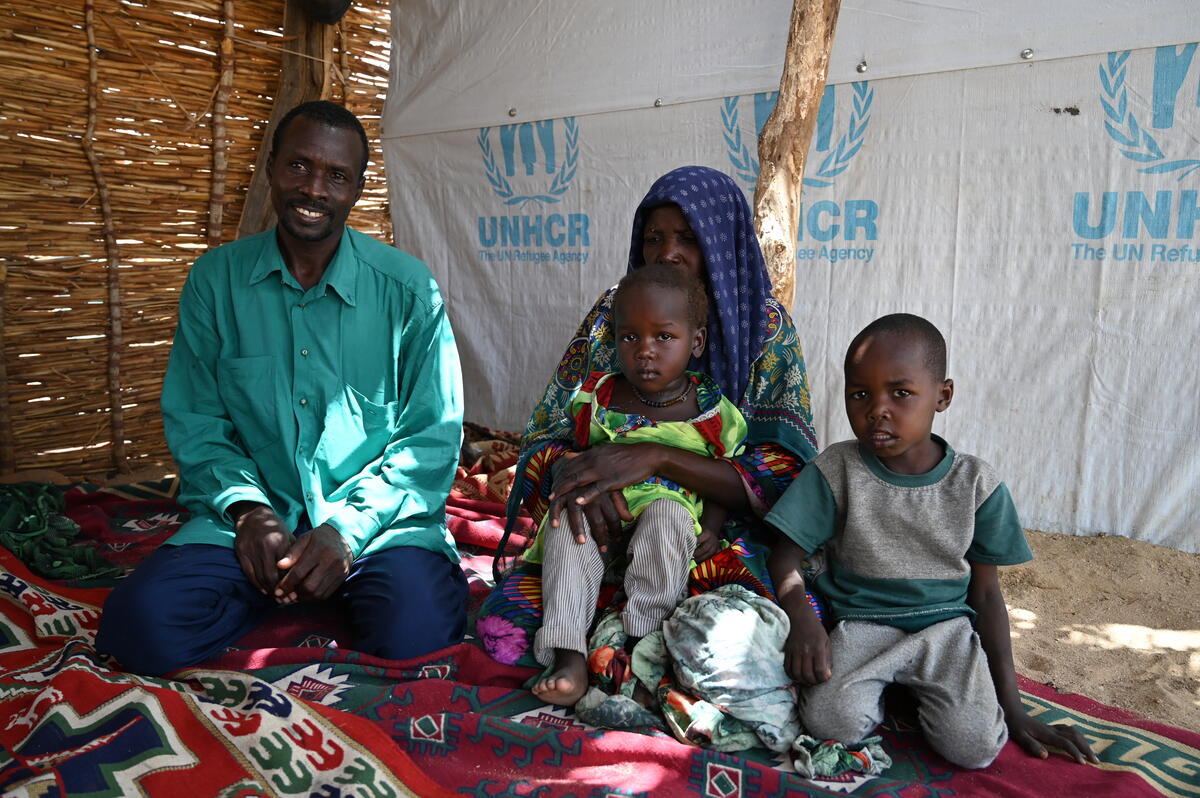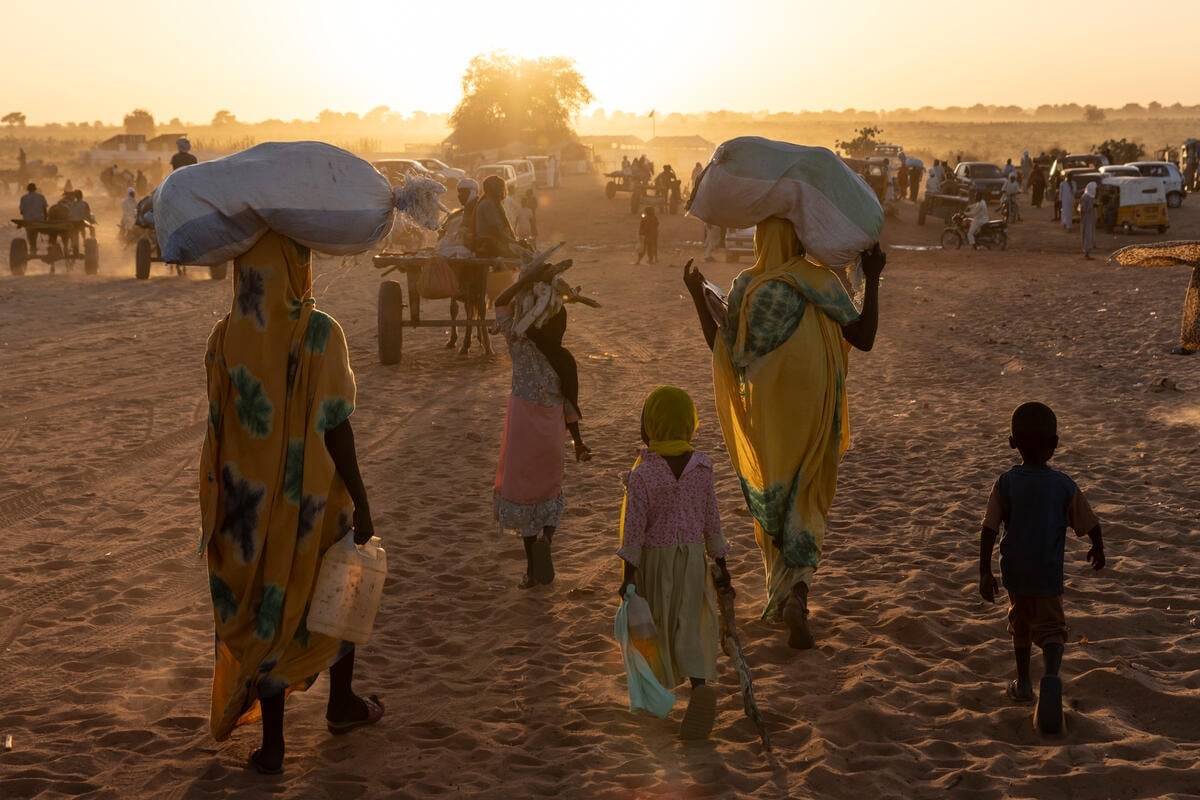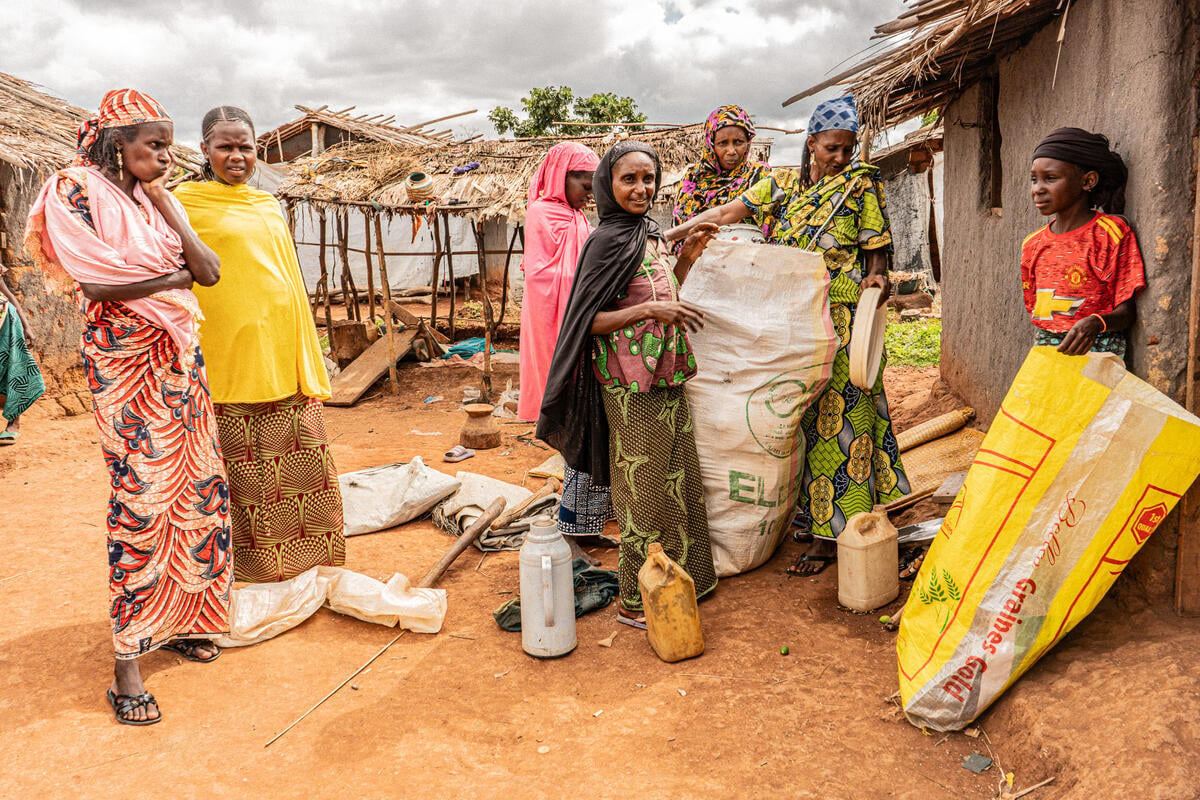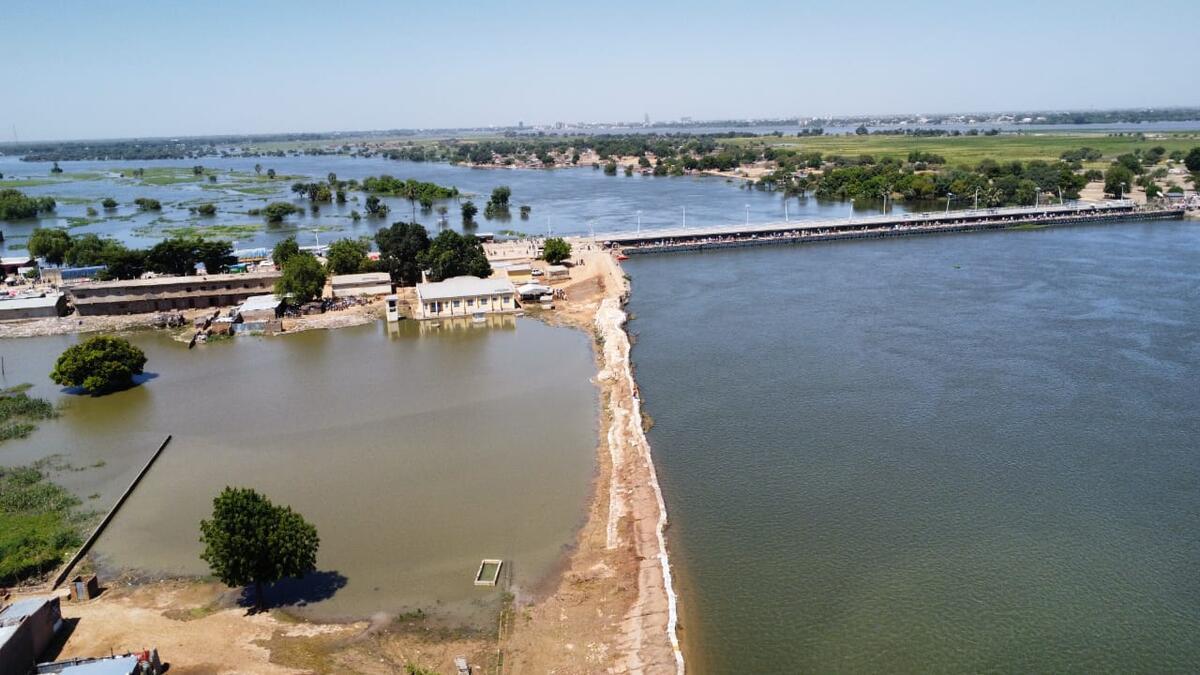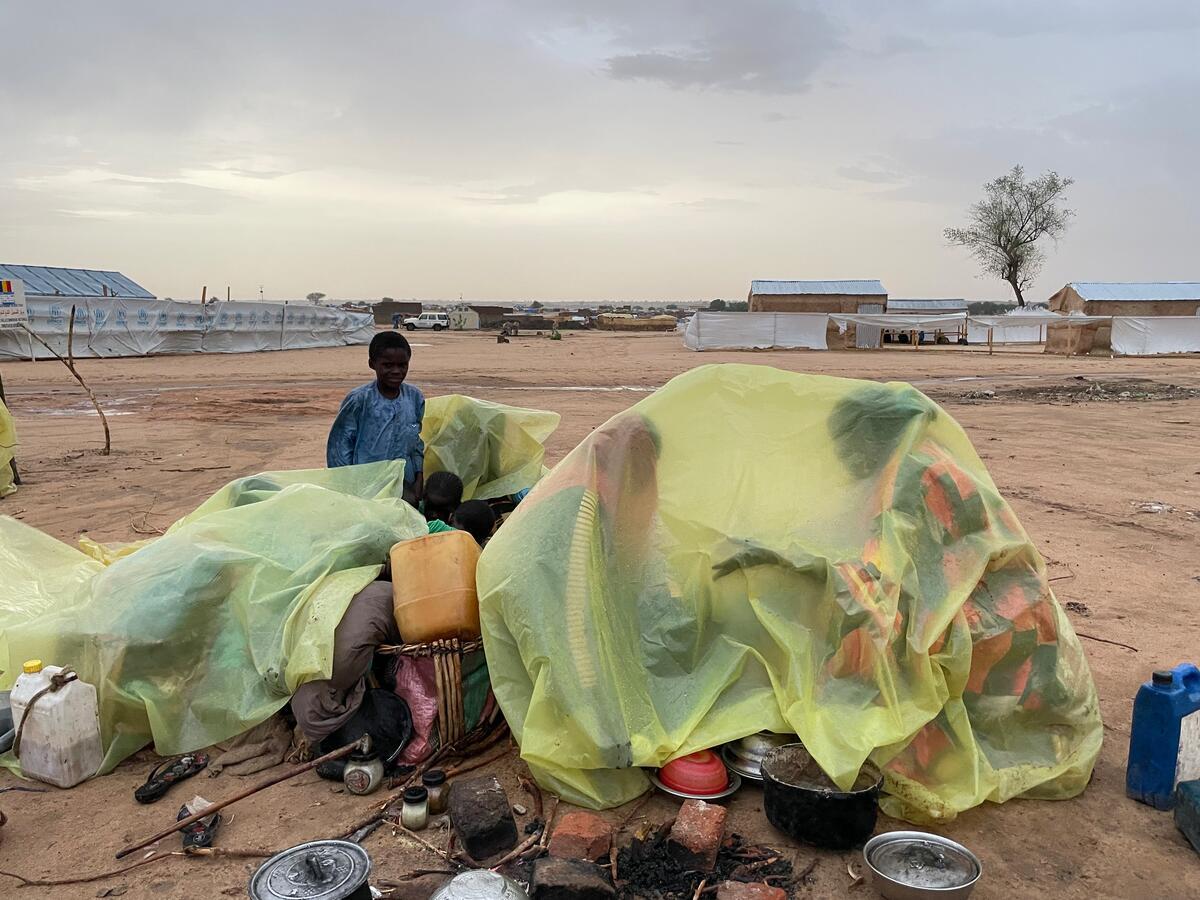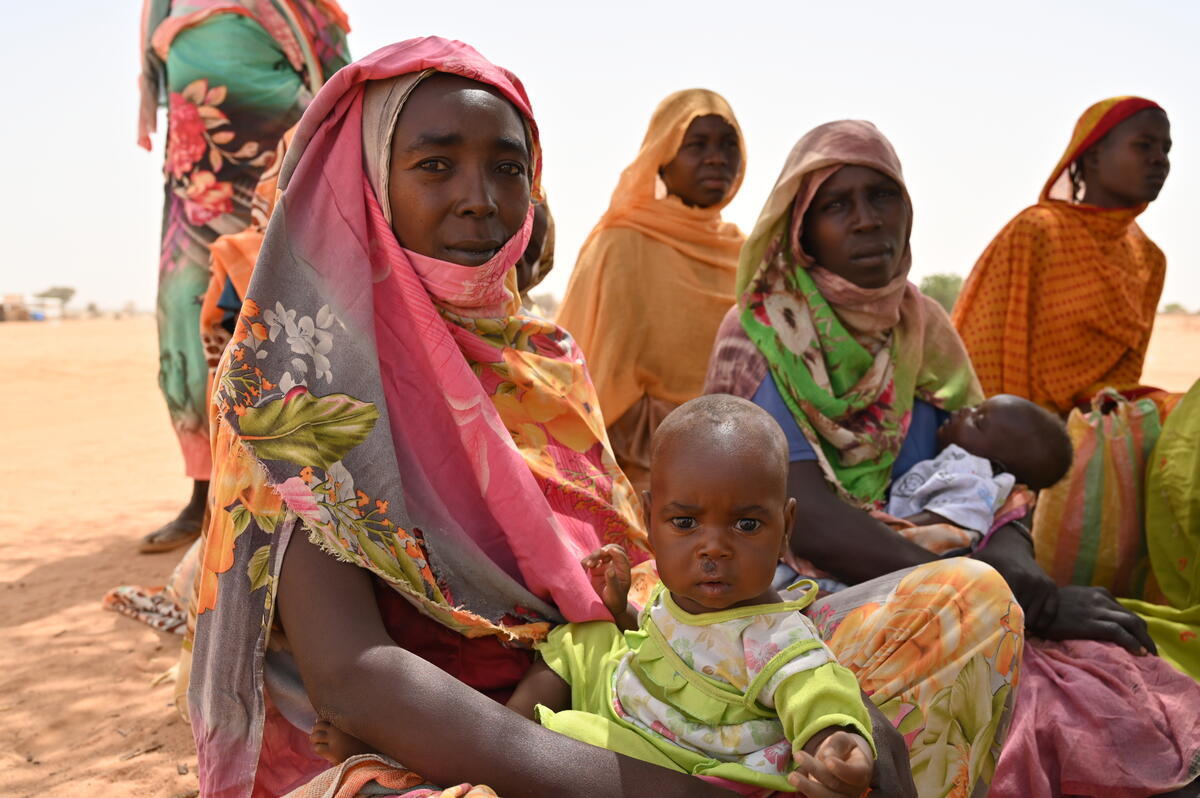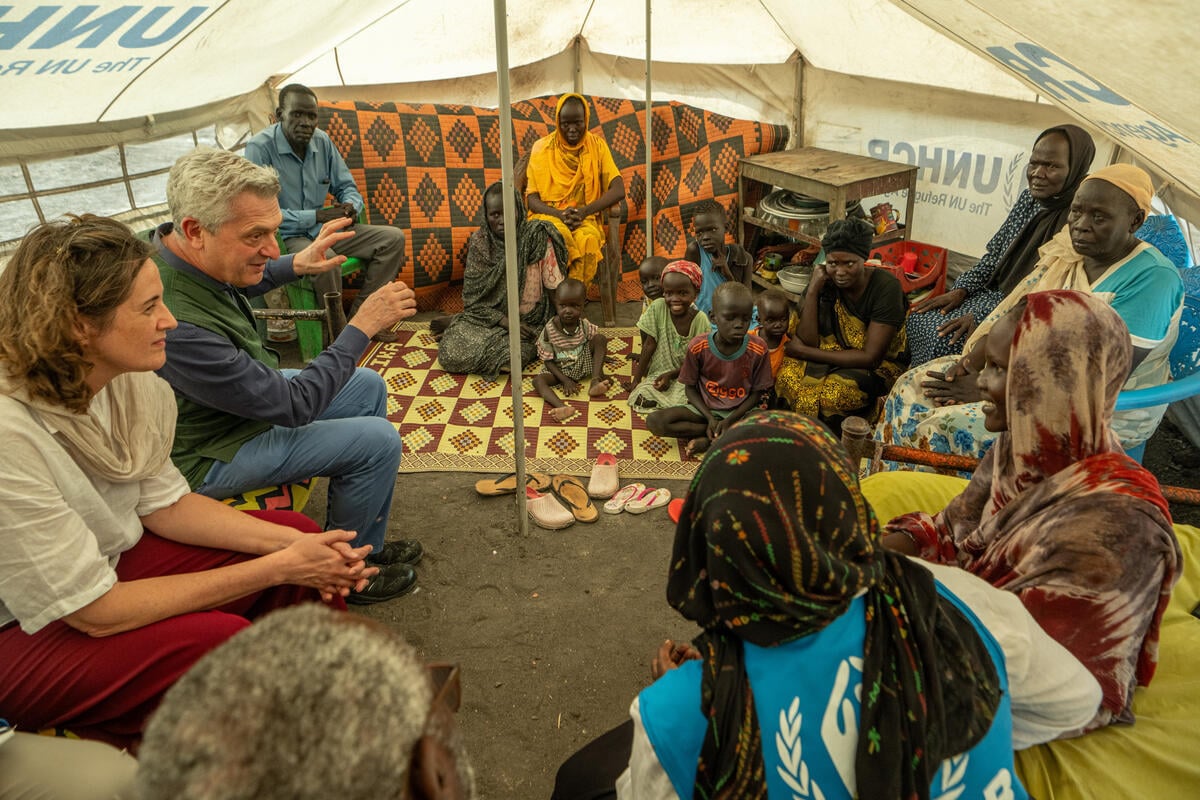Desperate conditions for thousands of new arrivals in Chad
Desperate conditions for thousands of new arrivals in Chad

NDJAMENA, Chad, Feb 20 (UNHCR) - A UNHCR team that was sent to southern Chad early this week following reports of a new wave of refugees has found thousands of Central African refugees and returning Chadians living under desperate conditions in several villages in south-western Chad.
On Wednesday, the UN refugee agency team returned to the Chadian capital, Ndjamena, after spending days assessing the needs of the terrified Central African refugees and displaced Chadians in the south-western border region of Goré. The new arrivals were escaping a fresh government offensive against rebels loyal to the former army Chief of Staff, François Bozizé, in northern Central African Republic (CAR). The influx into Chad is continuing.
"People are still arriving at an average rate of 500 a day," said Emile Segbor, UNHCR Representative for the Central African Republic and Chad. "They are basically living outdoors. There is no shelter, no food. The situation is very desperate."
The UNHCR team visited four different sites in the Goré area, where they found an estimated total of 6,300 Chadians and Central African refugees. The largest group was in the small frontier town of Koumba, south-east of Goré, where there were some 3,520 Central African refugees. Refugees here said they left their homes around Makourda, on the other side of the border, after rebels invaded their homes, terrorised the local population, killed people and looted property. Some had left their homes as early as January.
"Many of the people who spoke to the team said they were forced to leave because of the rebels who have occupied their homes and are killing people in the area," said Segbor. "Refugees told the team that people were killed for refusing to surrender their belongings."
At Kaba-Roangar, the second of the four sites visited, some 35 km south-west of Goré, the team found a cluster of 2,200 Chadians.
"In this village, we found about 2,200 persons who had just arrived from CAR and who were waiting to be trucked to Goré," said the UNHCR team leader in a written message from the border town of Goré.
The remaining two sites were both in Goré. At one site, a group of 200 Chadians, "freshly arrived from CAR with their luggage, were settling in front of the house of the Sous-prefect," noted the UNHCR assessment team leader, referring to the compound of the locality's administrative chief.
At the other site in the town, the medical non-governmental organisation, MSF-Belgium, was assisting some 300 returnee Chadians at a newly-established transit centre. The transit centre is now being expanded to accommodate up to 2,000 people.
Many of the returning Chadians were planning to travel to their areas of origin mainly in the Salamat prefecture, south-eastern Chad. A significant number did not know where to go as they had lived in the Central African Republic for decades and said they had lost links with Chad. The returning Chadians, mainly traders or farmers from the Bozoum and Paoua towns of eastern CAR, said they were being targeted in the latest conflict between the government and rebels.
"We have no proof that all Chadians are being targeted. But this is what they are saying to our staff on the ground," explained Segbor.
Meanwhile, the government of Chad has identified a site some 35 km from the border, just north of Goré, for the establishment of a camp for refugees from the Central African Republic.
On Thursday, the returning UNHCR assessment team met with government authorities and other UN agencies to agree on a plan of action that will include the development of the newly-identified site and the transportation of the returning Chadians to their areas of origin.


